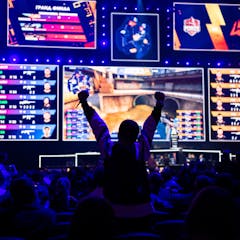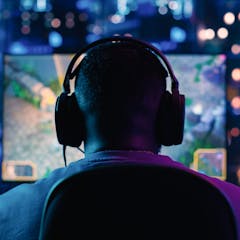
Articles on eSports
Displaying 1 - 20 of 33 articles

Esports, obstacle course racing and pickleball are becoming more and more popular, but how do they impact physical and mental health?

Studies reveal a chequered history when it comes to the benefits of hosting the event.

Electronic sports, or esports, is a practice that is often looked down upon. But it is a growing global phenomenon played on an incredible scale.

For young men who struggle with mental health or lack connections in real life, chat and community features of online games can be a source of support.

There are huge potential revenues for tourism in online video gaming’s massive fanbase – if they can be encouraged to attend live events in host cities.

Sexual harassment and discrimination in gaming and tech are not inevitable or permanent, write experts in the field. The solutions are positive community standards and women in power.

Sponsorship is key to holding some of the most popular events in the world.

Sexual harassment and discrimination in gaming and tech is not inevitable or permanent, write experts in the field. The solutions are positive community standards and women in power.

Women are a rarity in college esports. A scholar explores the reasons.

Diversification into related businesses can provide a firmer financial footing.

Esports is becoming a goldmine for betting companies. New research shows how their online ads are reeling in children.

Combating sexism and other forms of harassment in online videogames comes down to community standards.

The success of the virtual road race shows how quickly esports are moving into the mainstream.

With current social distancing measures, Australia’s sporting bodies can’t rely on physical attendance for revenue. Not turning to esports at such a time would be a missed opportunity.

Video games are becoming just as popular as professional sports, so why do people think it’s only a game?

Could the Olympics and other major sports be on the brink of bringing gamers into the ‘real’ sporting arena?

Esports is huge business, attracting millions of players and huge tournament prizes. But investors are worried about the level of hype in the industry.

A self-taught AI beat humans at their own game – here’s how they did it.

Video games were once thought to offer an escape from everyday life – but they often hold a mirror to what we do in reality.

Young people are spending more and more time in digital environments – isn’t it time that support was embedded?
